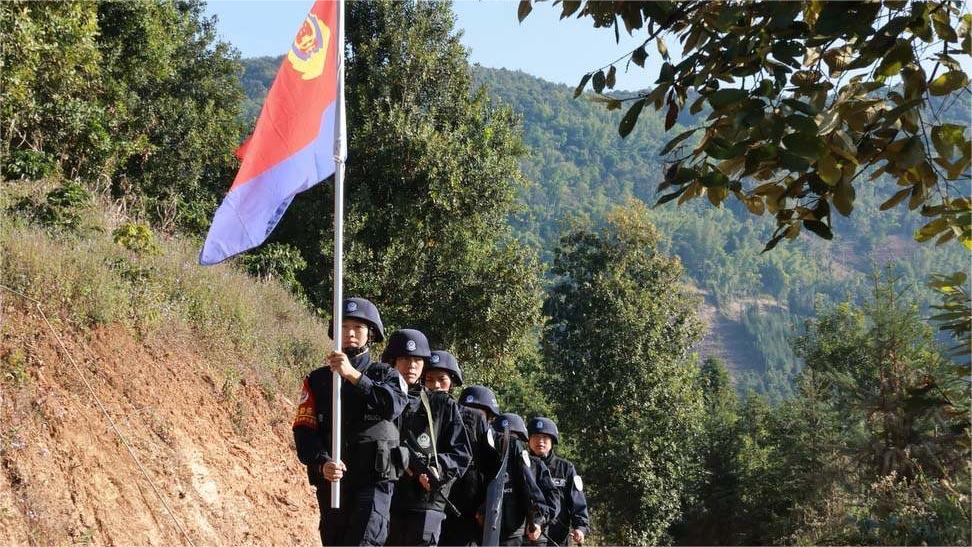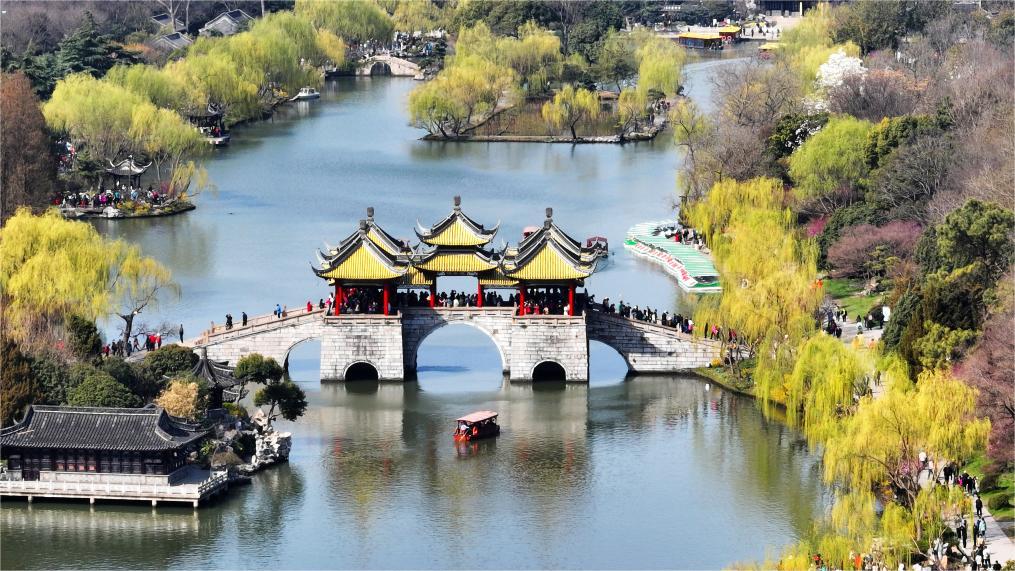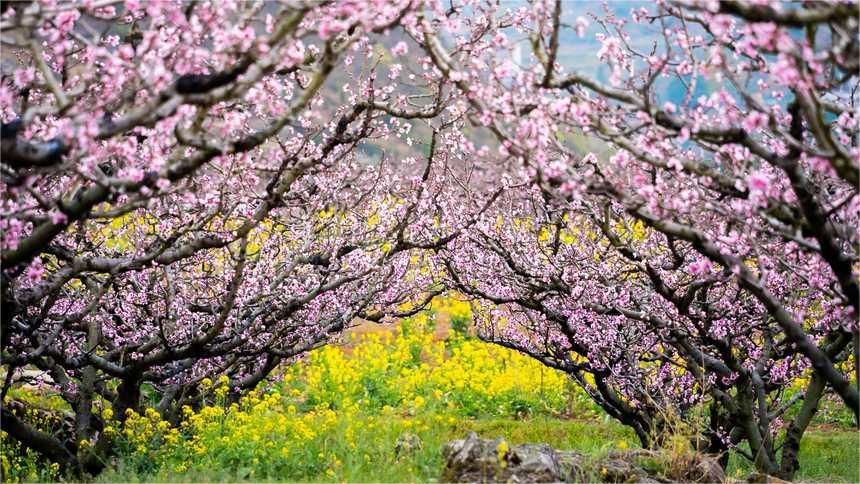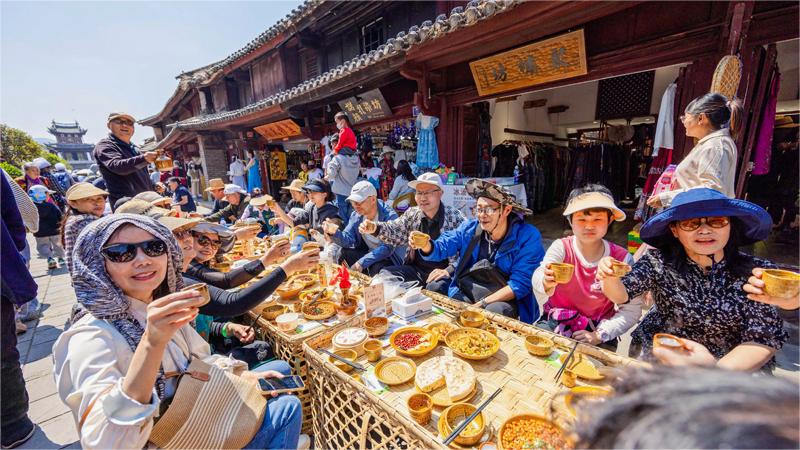In Mao's home province, returning youngsters shore up rural revitalization
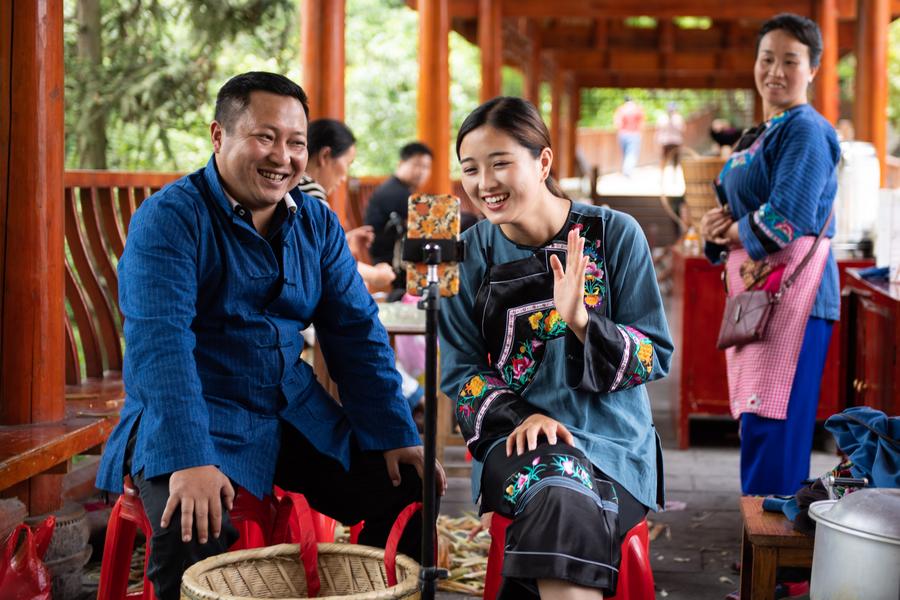
Ma Huihuang (L), then head of the poverty alleviation work team in Shibadong, promotes local products via live-streaming together with villager Shi Linjiao in Shibadong Village of Xiangxi Tujia and Miao Autonomous Prefecture, central China's Hunan Province, May 15, 2020. (Xinhua/Chen Sihan)
CHANGSHA, March 22 (Xinhua) -- This is the rice paddy teenaged Mao Zedong had cultivated, and the gray-roofed cottage over there is his former residence, Yan Fang said while twirling her phone to show her social media followers Mao's hometown Shaoshan in Hunan Province.
Yan, 35, is a Shaoshan-based tour guide and a livestreamer with 710,000 followers on Douyin, the Chinese equivalent of TikTok. She transitioned to become an online tour guide in 2020 during the COVID-19 pandemic when there were fewer visitors.
"At its peak, I did livestreaming every day, but now I'm busy again guiding offline tour groups with the revival of tourism," Yan said. She also opened a homestay last year, bullish about the prospect of red tourism.
Hunan is the home province of Chairman Mao, the late Chinese leader and a great proletarian revolutionary, and has a booming red tourism that involves visiting historical sites with a modern revolutionary legacy. Most of its 310 red tourism spots are scattered in rural areas, and have been developed by local governments to help boost villagers' income and improve their livelihood.
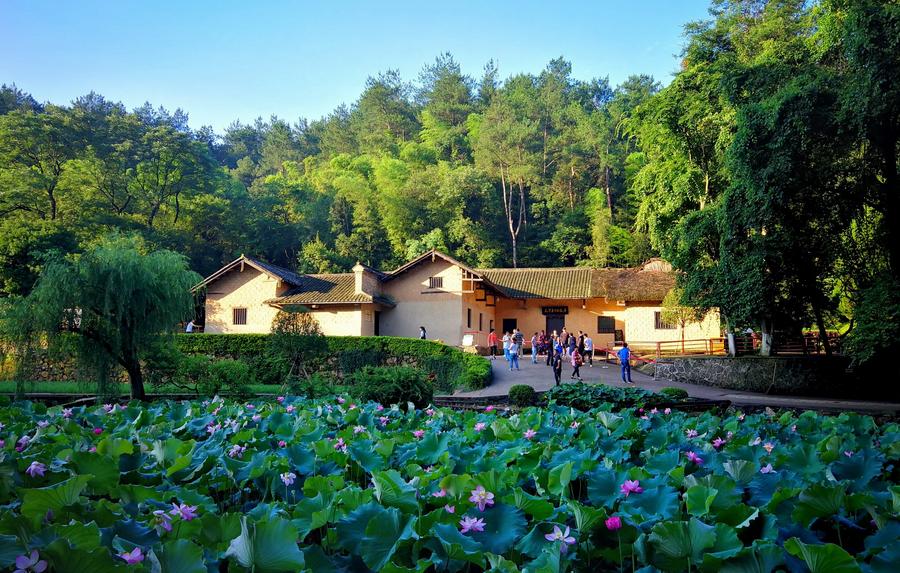
File photo taken on July 6, 2019 shows the former residence of late Chairman Mao Zedong in Shaoshan Village, central China's Hunan Province. (Photo by Mo Zhengde/Xinhua)
Poverty was once a persistent issue in Hunan's mountainous countryside but is swiftly becoming a distant memory, thanks to the poverty alleviation campaign and the ongoing rural revitalization drive.
A concurrent change is that more young people, who once left the countryside in exodus for better opportunities in cities, are returning to engage in tourism, modern agriculture and other thriving rural businesses.
In Shibadong Village in western Hunan, 28-year-old Shi Kang regularly hosts livestreams to promote and sell local farm products as local shops have fewer clients during the tourist off-season.
A decade ago, such entrepreneurship would have been unimaginable, as nearly all young locals sought employment as migrant workers in other cities, leaving behind only the elderly and children. The village had a daunting poverty incidence rate of 57 percent in 2013.
It is that year when "targeted poverty alleviation" was first introduced at Shibadong. This notion that later inspired the nationwide anti-poverty fight focuses on tailoring poverty relief policies to suit different local conditions and problems.
The village has since nurtured industries such as tourism, bottled mineral water and Miao embroidery, helping villagers wean off the reliance on government aid while luring back youngsters, said Long Ke, the Party chief stationed at the village.

Villager Shi Kang promotes village produce on a livestream in Shibadong Village in Xiangxi Tujia and Miao Autonomous Prefecture, central China's Hunan Province, July 2, 2022. (Xinhua/Xue Yuge)
So far, more than 200 young people have settled down in Shibadong, primarily engaging in the village's burgeoning tourism sectors, Long said. However, for many young villagers, this reverse urban-rural migration is not without its challenges.
Chen Shuaiyu, 30, recalls that his decision to return to farming after graduating from college in 2015 was met with frowns from his classmates and parents. Back then, farming was deemed both toilsome and unprofitable.
By incorporating modern agricultural machinery, Chen has now expanded his contracted rice paddies to 190 hectares in Xiejiapu Town in Changde City, and established his own rice brand.
"The countryside needs us young people. We are better at marketing and selling farm products, through avenues such as licensing and the internet," Chen said. "Helping more villagers get richer in this process also keeps me motivated."
This spirit of altruism is commonly echoed by young homecoming villagers, including Deng Shuai, who will soon become a primary school teacher in his rural hometown in the city of Liuyang.
Deng is in his final year at the Hunan First Normal University, Mao's alma mater. The school is known for supplying the countryside with graduate rural school teachers.
"Cities boast higher pays and better career prospects, but children in the countryside are in greater need of young teachers and their state-of-the-art teaching methods," said the 21-year-old Deng.
Despite the many challenges ahead, Deng acknowledges the increasing appeal of the countryside for the younger generation in recent years.
"There are more asphalt roads and nicer landscape designs in my hometown," he said. "More young people are now willing to return to the countryside to enjoy a better living environment."
Photos
Related Stories
- Hunan province strives to build inland hub for opening-up
- Legendary return of Hunan cuisine: Pride of Hunan Cuisine Season 3 currently airing
- China sends 20,000 disaster relief supply items to Hunan Province
- China upgrades emergency response for low temperatures in Hunan
- State Grid's Hunan branch goes all out to safeguard against ice, snow
Copyright © 2024 People's Daily Online. All Rights Reserved.






